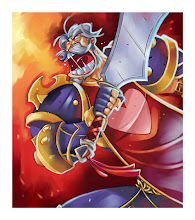In the summer of 1676, a revolution began in the colony of Virginia. This revolution was a battle of two individuals using various excuses to get the people of Virginia behind their policies and ideas of what should be done to make their colony a place of their own personal utopia. The revolution was later called Bacon’s Rebellion, named after Nathaniel Bacon Jr., the leader of the people rebelling against William Berkeley, the governor of Virginia for 15 years. These two men were very influential in the Virginia colony, and they both were stubborn in their views about how the “encroaching” Indian threat should be handled. Unfortunately they could in no way agree on how it should be handled. Bacon thought that all trade and land agreements with the local tribes should be forgone and the colonists should attack the Indians, while Berkeley wanted to maintain the peace with the Indians and follow the laws that had been in place for a long time, so as to keep benefiting from the beaver pelt trade that was making him one of the richest people in America at the time. Unfortunately, Berkeley’s policy came at the cost of not allowing the frontiersmen the ability to adequately defend themselves from the tribes that were in fact hostile. Thus, this as well as several other issues such as unfair taxation and low profits from the tobacco being grown in the Chesapeake area, turned into a prolonged rebellion, with both sides labeling the other as a traitor to the crown of England. Though it seems a common occurrence for people who read about Bacon’s Rebellion to take Bacon’s side in their historical analysis, I find too many faults in both Bacon as well as Berkeley to feel comfortable saying that either person had the correct ideas of how the situation should have been handled. I believe that both Nathaniel Bacon and William Berkeley were equally responsible for inciting Bacon’s Rebellion.
Bacon had a history of disobeying the laws before he ever even arrived in Virginia. “A contemporary remembered him as being tall and slender, ‘blackhair'd and of an ominous, pensive melancholy Aspect … not much given to talk, … of a most imperious and dangerous Pride of heart, despising the wiser of his neighbours for their Ignorance, and very ambitious and arrogant” (http://www.answers.com/topic/nathaniel-bacon), which paints Bacon as a man who did not want any sort of authority over him, and would do whatever he needed to get what he wanted.
Wednesday, October 15, 2008
Subscribe to:
Post Comments (Atom)


No comments:
Post a Comment